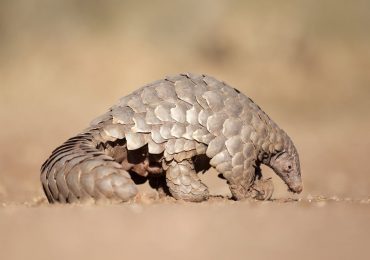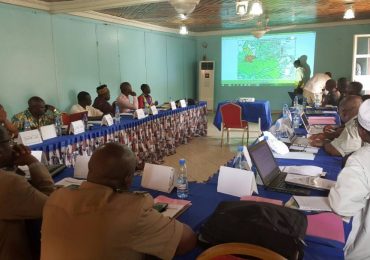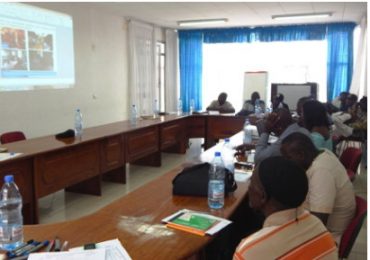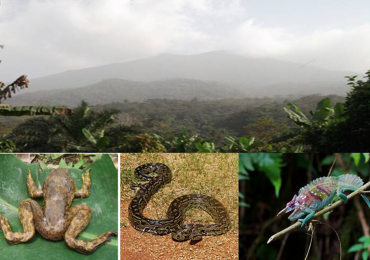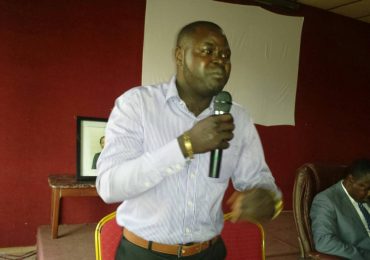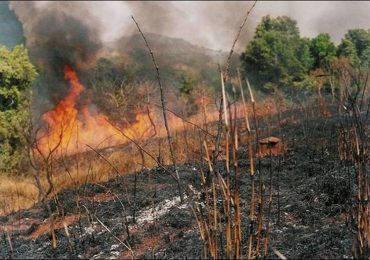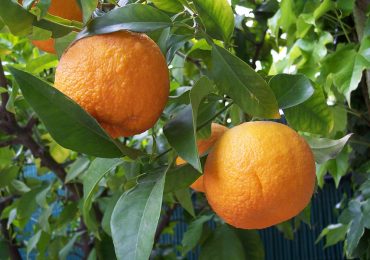Extreme variations in rainfall patterns and unusually hot spells have left the pigmies of the
South Region of Cameroon dumfounded.
By Anu Nkeze Paul

“As you all know, most of us have always depended on the wild as source of food needs but today the situation has drastically changed because of too much variation in the climatic conditions in our community,” says Ngoebakome Solange, an activist in the pigmy community found near SOCAPALM plantation in Kribi in the South Region.
She adds, “Our staple foodstuff – plantains and cassava – have become scarce because rainfall is irregular and high temperatures have negatively affected the growth of the crops.”
Ngoebakome says on many occasions, they have hurried to plant cassava and plantains only for the rains to the rains disappear for weeks.
Persistent sunshine and heat only lead to crops getting rotten in the soil. There is lots of irregularity in rainfall and sunshine, and this has greatly affected the production of our staple food crops,” says Ngoebakome.
According to the activist, there is a lot of hunger currently in their community and many women labour in vain because harvests have increasingly become poor over the past years.
The hostile climatic condition has driven the pigmy the community into conflict with SOCAPALM because the only source of water that the villager depend on for drinking, bathing, washing clothes and utensils is the same water that SOCAPALM uses to irrigate their nursery.
At times, says Ngoebakome, SOCAPALM pollutes the water beyond levels fit for consumption, “but since we do not have any other alternative water source, we continue drinking it. This has lead to some elderly people falling sick and even dying. We are scared if something is not done to remedy the situation.”
Ngoebakome says they did not have such challenges twenty years ago in their community, when they had many flowing streams.
“The situation is very complex and difficult for to us to manage with limited financial means. We really need assistance from government because our problems in this pygmy community seem to be multiplying daily,” Ngoebakome laments.
Ngoebakome says the anxiety of losing their livelihood to the uncertainties of the climate and their inability to depend on nature has pushed them to start educating their children so as to adapt for the future.
“We believe that if our children are educated, they may be lucky to pick a job that in return may support us rather than everyone depending on the wild or nature, which is currently disappointing many families because of poor harvests,” Ngoebakome told The Green Vision.
Luanga Akili is another pygmy woman who depends on herbs and plants for medicine. She also affirms that some herbs are becoming rare in the forest because of variations in the climate. She says some of the plants are not as potent as they used to be years back.
Luanga blames the changes to temperatures variations.
The effects of climate change has also triggered rural exodus into other neighboring communities like Kilobo and Bauga, 30 km from Kribi town, apparently caused by hunger and poverty. All these creating a new problem in the urban Kribi with a rise in crime wave linked the unskilled nature of most the migrants.
The pigmies of Cameroon fall under the indigenous population group whose rights are seriously violated often with their views not taken into consideration. Worst of all, they are not even represented in their council areas or at the National Assembly where their plights could be redressed.
The community this reporter visited has no schools, health services, no potable water source or any social recreation service of any kind.



